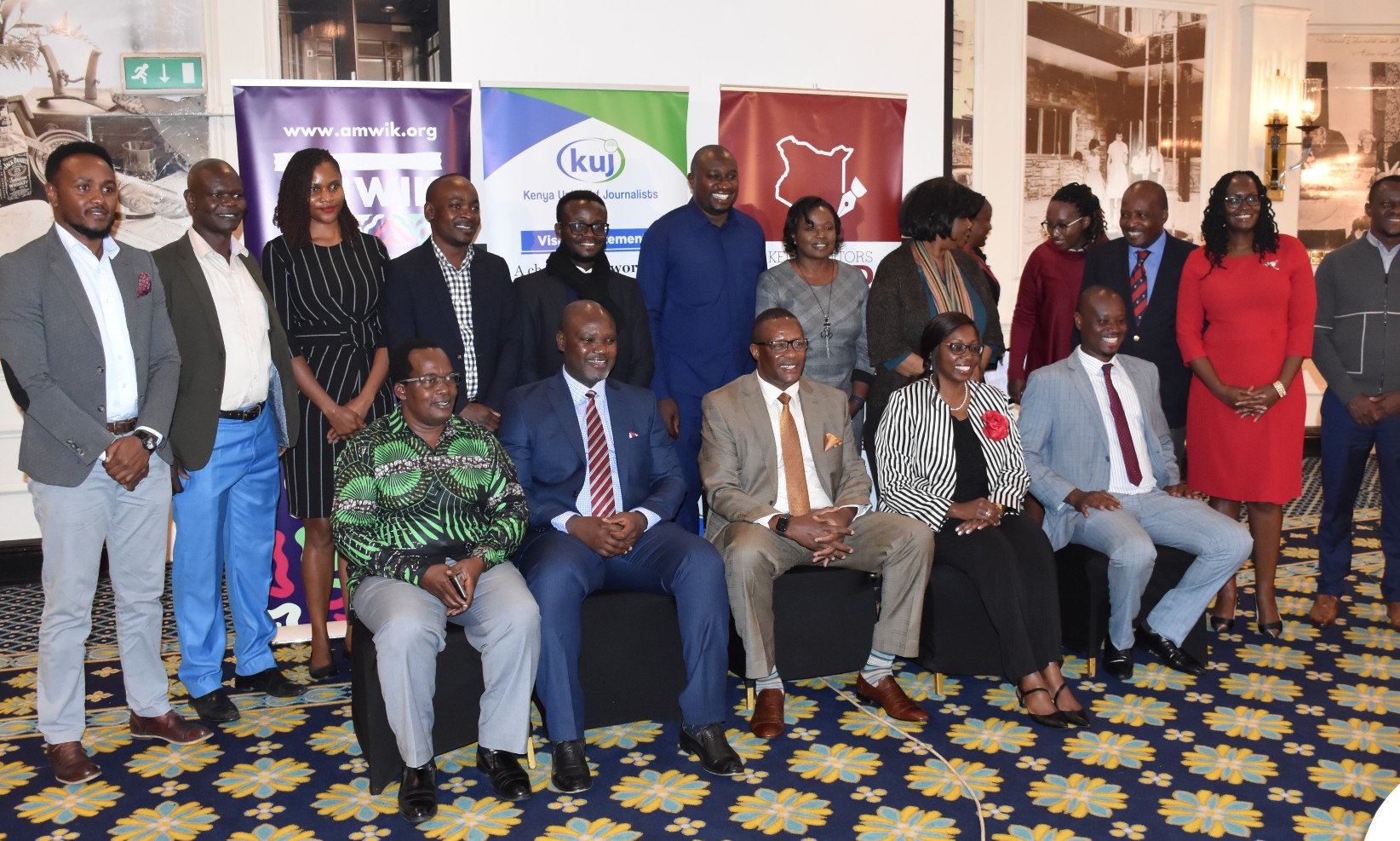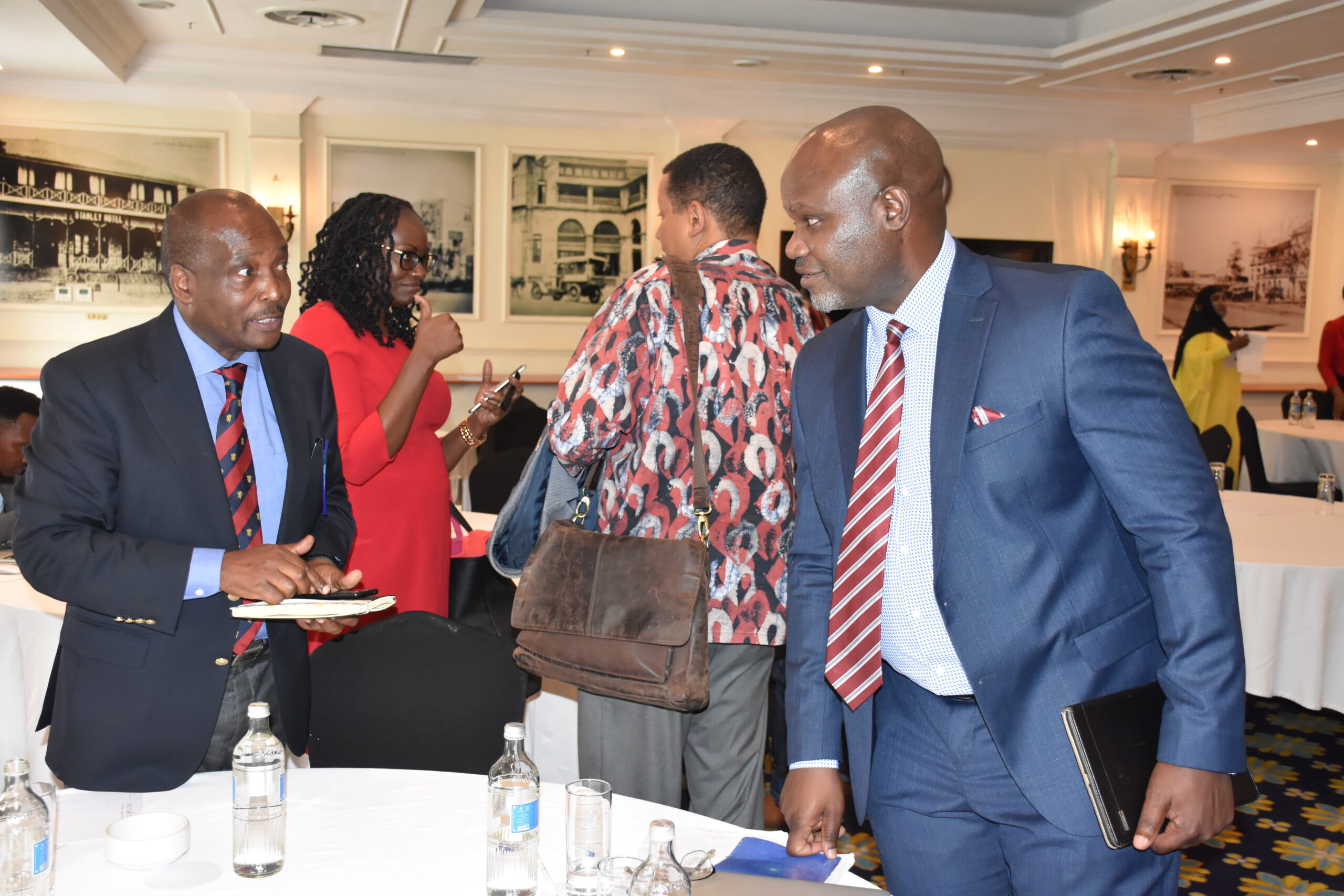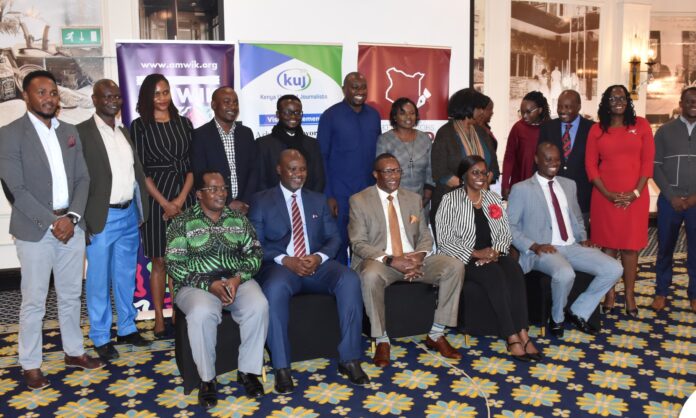|
Getting your Trinity Audio player ready...
|
By Henry Owino
Nairobi, Kenya: The media industry is the most trusted institution in the world in disseminating information to the public. As much as social media also relays information, conventional media remains the most reliable source of information outlet.
This is due to well-outlined and established structures that manage and verify the information before it gets to the public. The media industry also counterchecks the three arms of government and conveys information to citizens hence referred to as Fourth Estate.
To this end, media plays that critical role effectively only if; there is freedom of expression, and access to information, and journalists are guaranteed a conducive working environment without intimidation from the State agencies.
Media on another side must work in solidarity with all industry stakeholders for citizens’ welfare and the common good of the country’s development. Therefore, the media must continue to remain robust in its role as an entity that is trusted by the majority of the population.
These were some of the sentiments made by the Kenya Media Sector Working Group (KMSWG) convened by the Editors’ Guild during the International Day to End Impunity for Crimes Against Journalists (IDEI) on Wednesday, 2 November 2022 at a hotel in Nairobi.

While addressing a battery of journalists on the occasion, Eliud Owalo, Cabinet Secretary, Ministry of Information, Communications and the Digital Economy (ICT &DE) encouraged the media industry to nurture teamwork skills by being the mouthpiece of the public.
“Journalists must also learn to work together. It is awkward that on a day as important as this, the Kenyan journalism fraternity is pulling in different directions, marking the occasion in different groups that appear to be mutually hostile to each other,” Owalo noted.
“I advise that you should get your house in order and speak with one voice. It has been said that a house divided against itself will not stand,” the CS advised.
Owalo asserted that crimes against journalists come in different guises, perpetrated by different players. The assumption tends to be that the Government is the perpetrator. This is not necessarily the case.
The Cabinet Secretary for ICT & DE regretted that most of the time rogue elements within the Government have given entire departments such as law enforcement agents, a bad name. He said Government must remain vigilant at all times to protect journalists and citizens against rogue elements.
On the other hand, the CS challenged the journalists that even within the context of self-regulation, the media must also be on guard against internal rogue elements. These may be media owners, senior journalists who oppress their juniors, or those who engage in gender-based deviant behavior against their colleagues.
“Commercial interests, too, have been known to oppress journalists and to muzzle free expression. These, too, must constitute part of what journalism protests every 2nd day of November yearly,” Owalo hinted.
While the difference of opinion and approach is normal in civilized society, social conflict, and even political conflict, should never degenerate to the extent of descending into criminal activity. The ideal in every conflictual situation is early monitoring and swift intervention for conflict transformation. This can be done through the Media Council.
Conflict, however, must be managed and even transformed for the overall good of society. Democratic societies, such as Kenya, have institutional forums and instruments for resolving conflict and the pressures that generate it.
In the case of media-related pressures and conflicts, the Media Council of Kenya (MCK) is a statutory body to which both the Government and journalists are members. The Council should be in the habit of resolving conflict as intended by law.
“Even as we continue to respect these freedoms, we recognize that social conflict and divergence of opinion is part of a healthy society. Any society without some level of conflict is a dead society,” the CS stated.
The CS assured journalists that the current Government respect media freedom, as enshrined in the Constitution 2010, and in other pieces of the law. “We do not believe in media censorship or gagging the media. Responsible media regulates itself, in line with the laws of the land and the ethics of the profession,” he emphasized.
“My Ministry and the Kenya Kwanza Government will continue to defend the freedom of the Media, alongside other civil liberties,” Cabinet Secretary, ICT & DE added.
Both Journalism and Government have critical intersection objectives thus interest of the people’s welfare. Accordingly, he urged the two to work together, rather than appear to be hostile and adversarial against each other.
“The two ought to work in complimentarily of purpose, rather than in imaginary and often hostile competition. Both are keen on a democratic, free, and fair society, governed by the rule of law,” the CS advised.
Noordin Haji, Director Public Prosecutions (DPP), however, said with great power comes great responsibility. He urged journalists to be professional in the discharge of their duties and adhere to the Media Code of Ethics.
“I urge you to refrain from sensational media reporting and misreporting which often undermine the rule of law and public confidence in our institutions. For instance, the two media houses that were recently cited for contempt of court for misinformation against a key witness, which jeopardized the case,” Haji urged.
“I, therefore, urge you to focus on reporting the truth and facts to safeguard the rule of law,” he added.
Haji promised to investigate the death of Pakistani journalist, Arshad Sharif is active and assured the media fraternity that the Office of DPP will prosecute those found culpable of committing the heinous offense.
Now more than ever, the media is under “digital siege” making journalists’ work complex. Personal and violent attacks on journalists are becoming more commonplace online, with women being particularly vulnerable to Sexual and Gender-Based Violence (SGBV). This has a negative effect on journalists, who are forced to retreat in silence.

“As the ODPP, we thus assure you of our commitment to ensuring the protection of the media space and your security in Kenya at all times, in accordance with not only the Constitution of Kenya, but also the Universal Declaration on Human Rights, the International Covenant on Civil and Political Rights, and the African Charter on Human and People’s Rights,” Haji emphasized.
Haji revealed that guided by the Constitution and the ODPP Act, in addition to developed policies such as the Decision to Charge Guidelines, 2019, and exercised with control, transparency, and independence, he will ensure that prosecution of all crimes including against journalists are conducted fairly and professionally.
So, the Guidelines ensure that perpetrators of crimes against all Kenyans, including journalists, are brought to account, and will also play a role in preventing any frivolous cases that may be brought against journalists, as strict adherence to the law will be observed.














